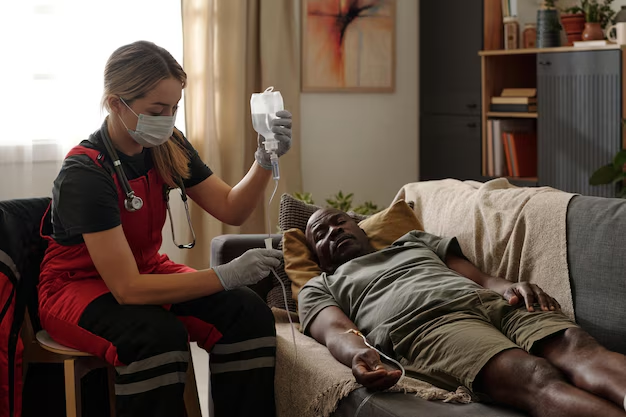Flying After Cataract Surgery: What You Need to Know
Cataract surgery is a common procedure that significantly improves vision for many individuals. However, patients often find themselves asking, "Can I fly after cataract surgery?" Navigating the do’s and don’ts after this surgery can be challenging, especially when considering travel plans. This article provides a comprehensive overview, detailing essential information and practical tips for those eager to return to the skies post-surgery.
The Basics of Cataract Surgery
What is Cataract Surgery?
Cataract surgery is a procedure that removes the clouded lens of your eye and, in most cases, replaces it with a clear artificial lens. The entire process is typically quick, with most surgeries lasting less than an hour, and it's performed on an outpatient basis. This means patients do not have to stay overnight in a hospital.
What to Expect After Surgery
Post-operative care is crucial for a smooth recovery. Most individuals experience significantly improved vision just a few days after the procedure. However, a full recovery might take several weeks, during which time it's essential to follow your eye doctor's care instructions closely.
Is It Safe to Fly After Cataract Surgery?
Immediate Concerns
Many healthcare professionals advise patients to wait at least one week before taking a flight. The cabin pressure and dry environment could potentially lead to complications, although these are rare. Fluid retention, vision fluctuations, and changes in eye pressure may occur if post-surgery guidelines are not followed.
Pressurization and Eye Health
Cabins in commercial flights are pressurized to the equivalent of about 6,000 to 8,000 feet above sea level. While this pressure change is generally safe, it might cause discomfort or minor pressure changes in the sensitive tissues of the eye after surgery.
Waiting Period Recommendations
It is best to consult your ophthalmologist to get personalized advice based on your specific circumstances. If you have to fly for an unavoidable reason, getting a thorough eye examination before you travel can help ensure there are no complications that need addressing.
Preparing to Fly Post-Surgery
Tips for Safe Travel
Follow All Post-Op Instructions: Ensure you adhere to all instructions given by your ophthalmologist, including the use of prescribed eye drops.
Timing is Everything: Plan your flight after obtaining a green light from your healthcare provider. It often depends on individual recovery progress.
Pack Essentials: Don't forget to pack all necessary medication, including eye drops, and wear protective eyewear when necessary.
Stay Hydrated: The air inside an airplane cabin is significantly less humid than the air at ground level, which could dry your eyes. Drink plenty of water and use any recommended lubricating eye drops.
Avoid Rubbing Your Eyes: It can be tempting to rub your eyes if they feel tired or dry, but this should be avoided to prevent irritation or infection.
Managing Expectations
Understand that vision fluctuations are normal during the initial post-surgery period. Be prepared to experience some tiredness, dryness, or slight discomfort during your flight.
Related Concerns and Subtopics
Traveling with Medications
When flying, it's essential to have your medications easily accessible. Carry all prescribed eye drops and medications in your hand luggage to ensure you can use them as needed during the flight.
Insurance and Follow-Ups
Travel Insurance: Consider checking with your insurance provider about coverage for eye health or potential complications while traveling. It might provide peace of mind during your journey.
Follow-up Appointments: Schedule a follow-up appointment with your ophthalmologist either before or soon after your trip to ensure your recovery is on track.
Lifestyle Adjustments Post-Surgery
Some lifestyle adjustments may be recommended to ensure optimal recovery, such as avoiding extreme sports or strenuous activities. Flying can be taxing on the body, so ensure you're rested and healthy before embarking on your journey.
Long-term Eye Health
Protecting Your Vision
Maintain healthy vision long-term by regularly wearing sunglasses to protect your eyes from harmful UV rays, especially when traveling to sunnier destinations. Adopting good eye-care habits is key to preserving your post-surgery vision improvements.
Continuing Eye Care
Consistently monitor your eye health and attend all scheduled eye examinations. Regular check-ups can catch complications early and provide information about any changes in your vision needs.
Planning Future Travels
As you consider future travel plans, incorporate lessons from your cataract recovery process to make informed choices. Confidence in managing your vision health, particularly while traveling, requires understanding your unique health needs and maintaining communication with your healthcare provider.
Summary of Key Takeaways ✈️👁️
- Wait a Week: Most experts recommend waiting at least a week before flying post-surgery.
- Consult Your Ophthalmologist: Get personalized advice based on your condition and recovery progress.
- Follow Post-Op Guidelines: Adhere to your doctor's instructions for recovery and eye care.
- Pack Essentials: Include medications and eye drops in your travel bag for easy access.
- Stay Hydrated and Protected: Drink water and use lubricating drops to combat airplane dryness.
- Schedule Follow-ups: Book follow-up appointments to ensure recovery is on track.
- Consider Insurance: Look into travel insurance coverage for added peace of mind.
- Protect Your Vision Long-term: Wear sunglasses and continue regular eye check-ups.
By incorporating these practical tips and considerations, you can confidently plan your travels while caring for your vision health after cataract surgery. Safe travels and clear skies ahead!

Related Articles
- Are Cataracts Curable
- Are Cataracts Genetic
- Are Cataracts Hereditary
- Are Cataracts Nuclear Sclerosis
- Are Cataracts Painful
- Are Ivizia Eye Drops Okay After Cataract Surgery
- Are You Awake During Cataract Surgery
- Are You Awake For Cataract Surgery
- Are You Put To Sleep For Cataract Surgery
- Are You Sedated For Cataract Surgery
